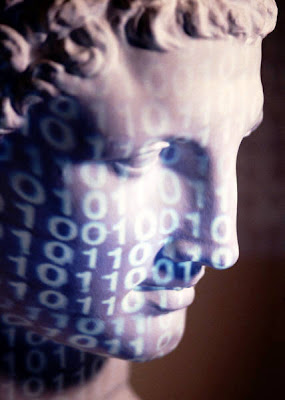Celebrating Charles Darwin and the Human Thirst for Knowledge

This year is a special one when it comes to celebrating our quest for knowledge by marking the 200th year of Charles Darwin's birthday and the 150th year of his seminal work on evolution--the theory that explains the mechanism by which we are here today. Most of the world in 1859 was not very scientific, which makes Darwin's discovery even more remarkable. His theory of evolution has been ferociously attacked since the day Origins was published. I could understand those who didn't have the benefit of an education in science or anything else, but to deny one of the strongest scientific theories we have today is rather incredulous.
Once, briefly, I accepted biologist Stephen Jay Gould's notion of "non overlapping magisteria," that is, science and religion address different domains, and, therefore, claims made by these magisteria cannot be reconciled nor should they be compared. Not so, I contend today. Denying evolution, for example, is based on religious claims--a priori statements that cannot be subject to evidence or reason. This is crazy! Claims about reality must be evaluated. Religion and science both make such claims.
Think about it. They want to subject scientific theories to scrutiny by throwing some verses from ancient books at them. Darwin investigated, observed, collected evidence, established a theory that could predict, and as scientific theories go, there's a way to disprove it. Yet, disproving a strong theory must be done with evidence and reason. Darwin's basic theory of evolution has been confirmed by several other branches of science--unknown to the humans in the 19th century. Now, we have religious fanatics who refute this because they believe a book that was written a few thousand years ago is the absolute truth. They want to believe what ever suits their needs--and placing humans at the center of creation (of the whole universe) must feel good. What an arrogance! The worst part of this is that they want to spread their ignorance through the public education system! Oh, and they have this expensive but utterly stupendous creation museum... where they show the Biblical version of evolution. This version has vegetarian dinos strolling around with humans. Since the courts have declared that creationism is not science, they try to label their religious doctrine as "intelligent design." Fortunately their trick hasn't worked... in most states. In some state schools, creationism is considered as an alternative theory to evolution--you know, for balance. Or, as our former president GW Bush said, "the jury is still out"...so, teach both sides to a story. Like, teach alchemy to balance chemistry, astrology to astronomy, magic crystals to medicine.
The worst part of this is that they want to spread their ignorance through the public education system! Oh, and they have this expensive but utterly stupendous creation museum... where they show the Biblical version of evolution. This version has vegetarian dinos strolling around with humans. Since the courts have declared that creationism is not science, they try to label their religious doctrine as "intelligent design." Fortunately their trick hasn't worked... in most states. In some state schools, creationism is considered as an alternative theory to evolution--you know, for balance. Or, as our former president GW Bush said, "the jury is still out"...so, teach both sides to a story. Like, teach alchemy to balance chemistry, astrology to astronomy, magic crystals to medicine.
I don't remember when I had my epiphany of reason and how I escaped with my curiosity intact, but I realized early on that education was how to better understand my own self, the human condition, and the cosmos. Alas, the more you know, the more you realize there more unknowns. Yet, the journey continues. Actually, reality is far more exciting, like the hidden colors in the visible light that are revealed by refraction! Why should there be a supernatural realm?
There's got to be a need of some sort that makes so many humans disregard reason and science. If they don't know any better, they may have a good excuse, but if they live in an advanced society they have no excuse. The powerful dictates of a culture inculcated by religion make strong shackles of the mind. By looking at US politics, one might say that ..devolution is also possible. On the other hand, our knowledge is increasing at an accelerated pace--much like the galaxies are speeding apart at an increasing rate.. ..well, except that the bigger Andromeda galaxy is heading our way on a collision course with the Milkyway.
On a more positive note, the average life of a species is about 2 million years, so by the law of probabilities, the human species may have a few more years of life left. You wouldn't know it by looking at the abundant life around us, but the Earth is a deadly place--indeed many forces in the universe are hostile to life. Some 98% of all species that ever appeared on this blue planet have been extinct. Most life is brutish, painful, fearful, anxious, poor, and short. Pain and suffering has been a constant. Some design, heh? And, if this was a laboratory to do testing on live specimens, it would have been shut down in any self-respecting society or under a moral entity.
What has elevated humanity is our ability to think, to reason, to be creative--more so than other species. We have choices to make; we can even create our own choices including our destination. But, perhaps the most amazing thing is the journey itself and the process by which we move through spacetime.















